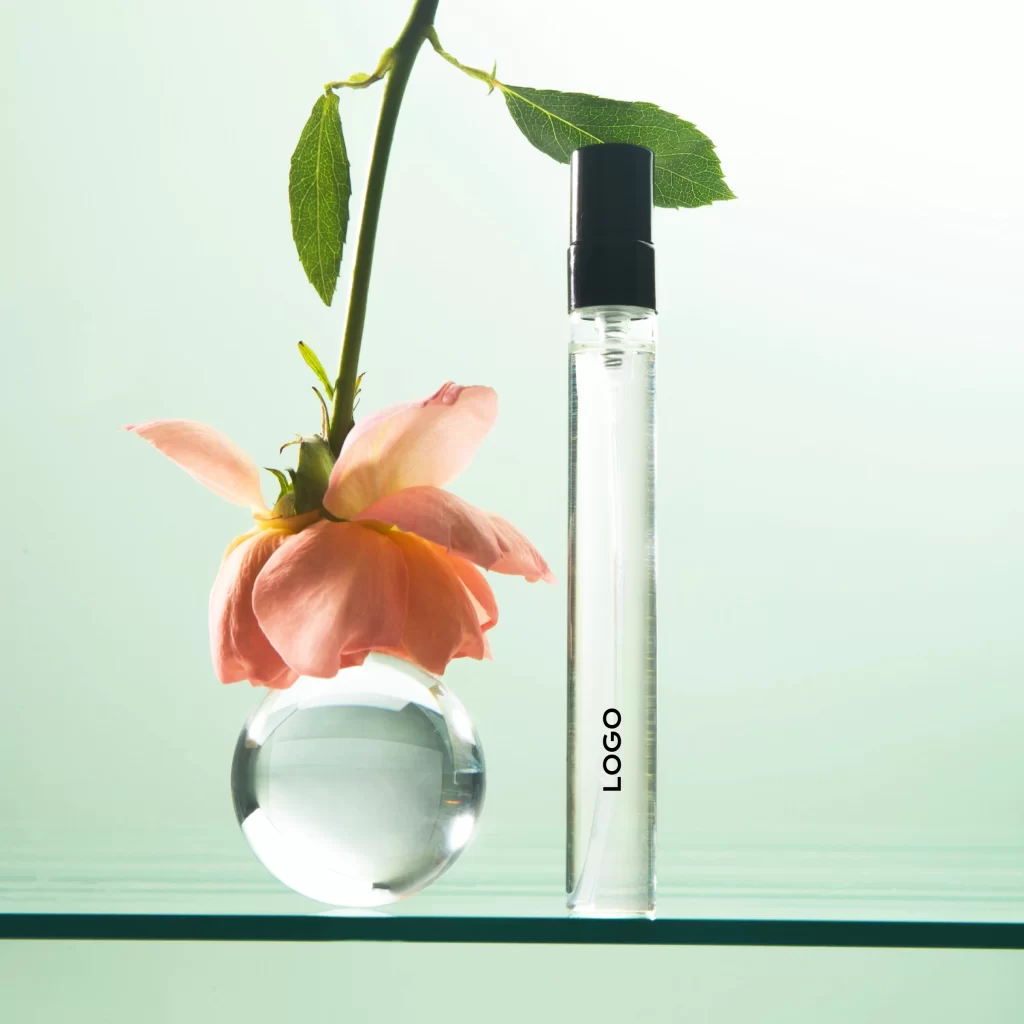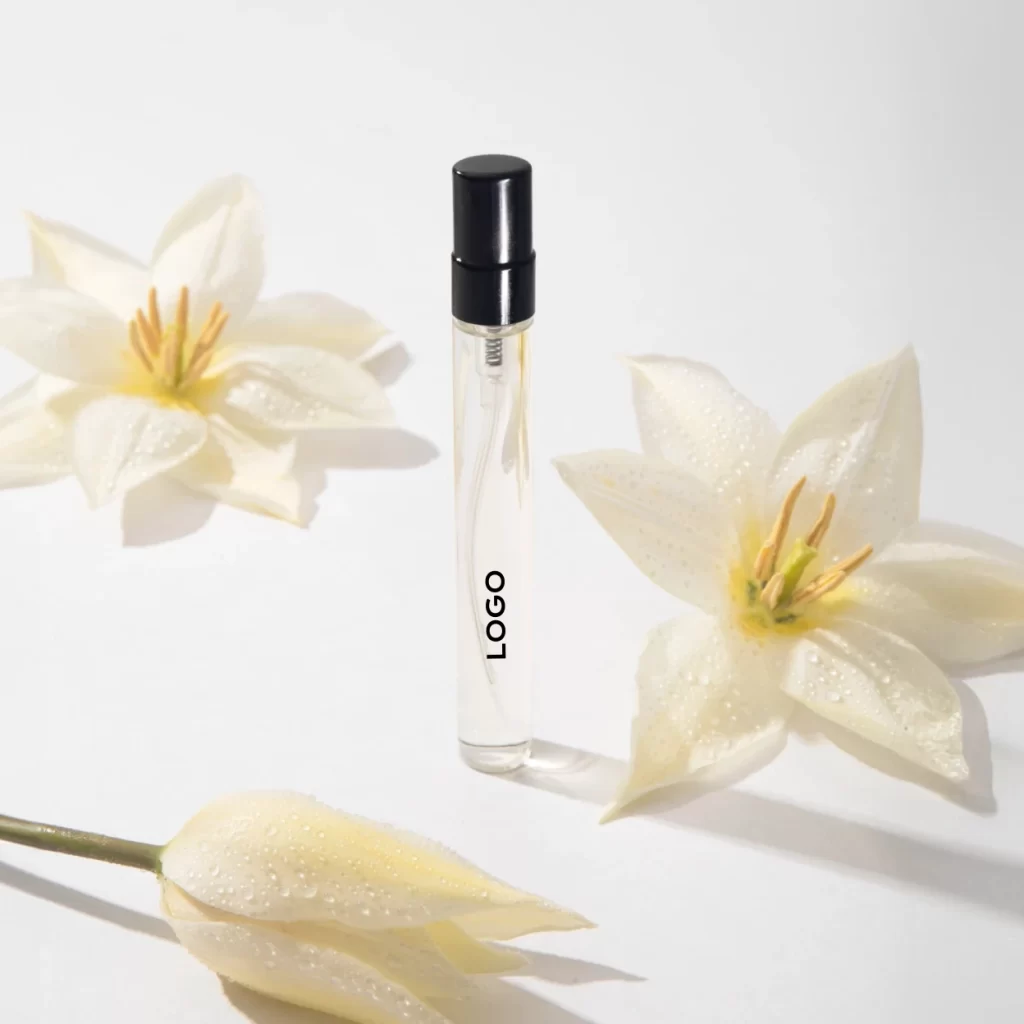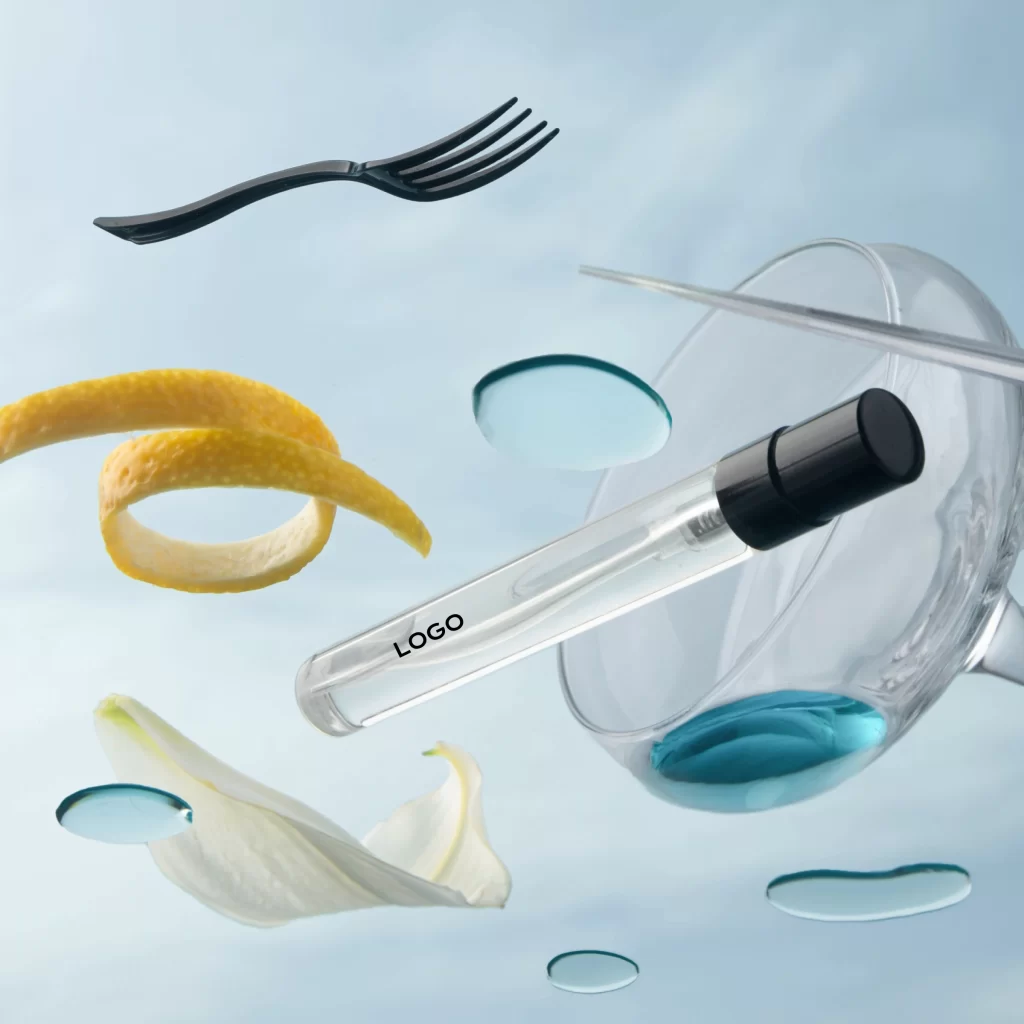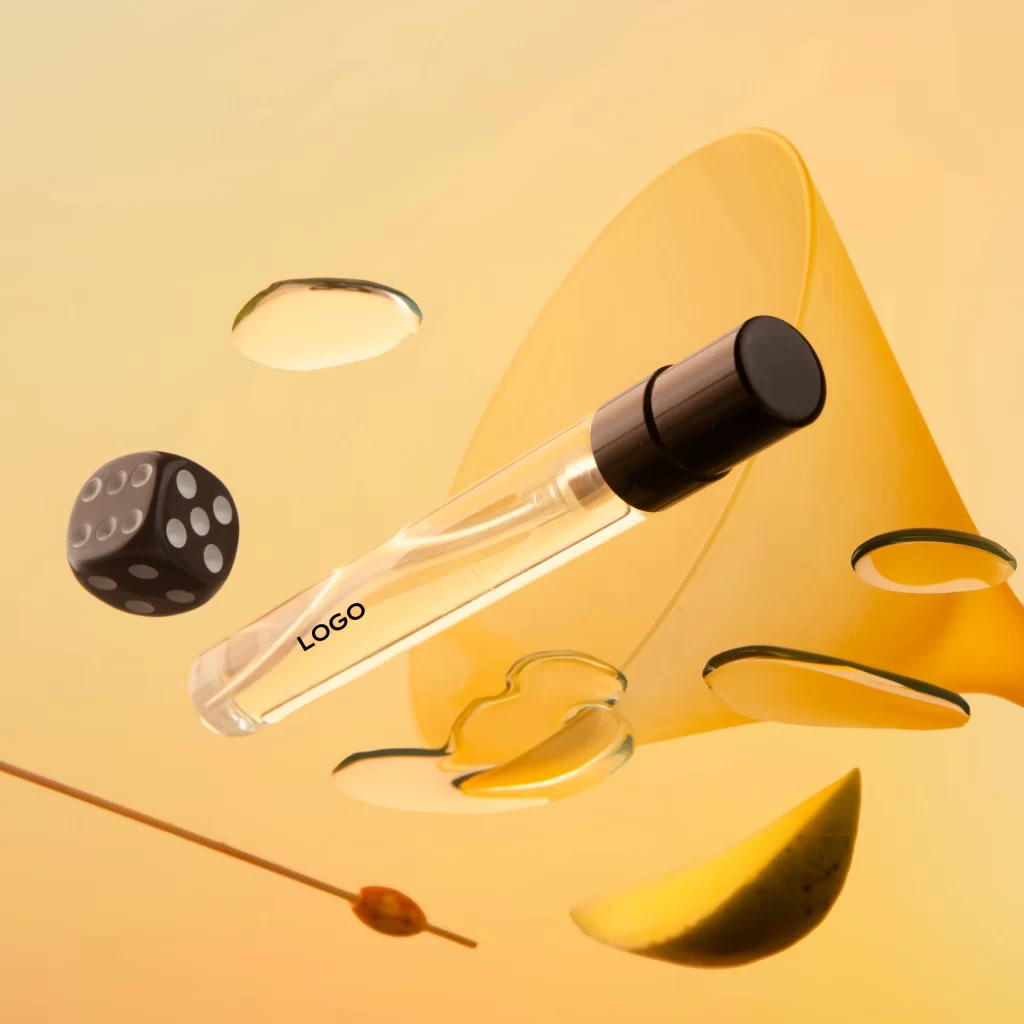Common Usage Challenges and Strategies for Glass Spray Bottles
Glass spray bottles, as an important industry in the modern packaging industry, have become a green packaging choice respected by many companies and consumers because of their reusability and low environmental pollution.
However, despite the many advantages of glass spray bottles, there are still some common problems that may be encountered in the process of using them, which, if not resolved in time, will not only affect the experience of using them, but may also lead to product wastage or the situation where the liquid inside the bottle cannot be fully utilized. Therefore, understanding and responding to these common problems is crucial to improving the efficiency of glass spray bottles and extending their service life.
Why Do Spray Bottles Stop Working?
☝ FAQ 1: Clogged Sprayer
Problem Description: During long-term use of glass spray bottles, nozzles may become clogged due to the accumulation of liquid residue or deposits, resulting in uneven clogging or the inability to spray the special body smoothly. This usually occurs when using essential oils, lotions or other liquids that tend to form deposits.
Solution
-
- Clean the Nozzle Regularly: To prevent clogging, clean the nozzle regularly. You can remove the nozzle and soak it in warm water and a small amount of vinegar to soften the residue, then gently rinse it off. Vinegar has the ability to clean and dissolve deposits without causing damage to the glass or nozzle material.
- Use a Needle or Small Western Object to Clear the Blockage: If the nozzle is clogged, use a small object such as a fine needle or toothpick to carefully remove the blockage. This should be done gently to avoid damaging the internal structure of the nozzle and to ensure that the normal function of the sprayer is restored.
☝ FAQ 2: Uneven Spraying or Insufficient Pressure
Problem Description: As the spray bottle is used over time, the internal components of the sprayer may become worn, aged or loose, resulting in uneven spraying or insufficient pressure when spraying, which affects the results of use. This is especially likely to occur with spray bottles that are used more frequently.
Solution
-
- Check the Tightness of the Spray Pump: When spraying unevenly or with insufficient pressure, first check whether the spray pump is loose. If you find that the nozzle or pump assembly is loose, gently tighten the nozzle or pump to ensure that it is securely attached to the bottle, thus restoring normal spray function.
- Replacing a Worn Spray Tip or Pump: If the sprayer’s components have shown significant wear or deterioration, simply adjusting the pump’s looseness pit will not completely solve the problem. In this case, replacement of the spray head or pump assembly should be considered to ensure that the nebulizer is able to dispense liquid evenly and provide adequate spray pressure. Selecting reliable quality replacement parts can significantly extend the life of your product.
☝ FAQ 3: Broken or Cracked Glass Spray Bottles
Problem Description: Although glass spray bottles have an elegant appearance and something about Warner Bros, glass is fragile and prone to cracking or breaking when dropped or hit accidentally. This will affect the appearance and function of the spray bottle, and may also pose an unavoidable safety hazard.
Solution
-
- Use Non-slip Cover or Protective Sleeve: In order to reduce the risk of glass bottles falling or bumping, it is recommended to pretend non-slip cover or protective sleeve for glass bottles when they are necessary to be used in daily life. These covers are usually made of silicone or other impact-resistant materials, which can not only prevent your hands from slipping, but also provide a certain degree of cushioning protection for glass bottles, effectively reducing the probability of bottle breakage.
-
- Immediately Stop Using Bottles with Cracks and Recycle Them Safely: once you find a crack in the glass bottle body, you should stop using it immediately to avoid further expansion of the crack, which may cause liquid leakage or sudden rupture of the bottle. Broken glass bottles should be disposed of properly and recycled safely to avoid harming yourself or others. Glass materials can be recycled, so recycling is not only environmentally friendly, but also reduces the waste of resources.
☝ FAQ 4: Deteriorating Sprayer Parts
Problem Description: With extended use, plastic, rubber or metal fittings in the sprayer may deteriorate due to prolonged exposure to liquids or air. This aging will lead to a decrease in the overall sealing of the sprayer, liquid leakage, or even lead to the overall failure of the sprayer to work properly.
Solution
-
- Regular Inspection of Seals, Pump Heads and Nozzles: To minimize the risk of sprayer failure due to deterioration of fittings, it is recommended that key components of the sprayer, such as seals, pump heads and nozzles, be inspected regularly. Focus on these parts for signs of wear, deformation, cracks or hardening. As soon as these problems are detected, immediate action should be taken to replace them to avoid minor problems from developing into major and functional disorders.
- Choose Quality Replacement Parts: When replacing sprayer parts, choose higher quality replacement parts, especially for core components such as seals and spray pumps. High-quality parts are usually more durable and resistant to aging, which can effectively extend the overall service life of core components such as the spray pump. In addition, using high-quality replacement parts that are compatible with the original parts will ensure that the sprayer continues to operate efficiently.
☝ FAQ 5: Impact of Type of Stored Liquid on Spray Bottles
Problem Description: Some highly corrosive or chemically strong liquids may have adverse effects on plastic or metal parts of spray bottles, especially spray heads and sealing parts. This kind of liquid may accelerate the aging and corrosion of the entire spray product, or even make the entire product unusable.
Solution
-
- Ensure that the Liquid is Compatible with the Overall Material of the Spray Bottle: Before using the glass spray bottle, make sure that the stored liquid is compatible with the overall material of the spray bottle. Especially for the liquid with corrosiveness or chemical reactivity, the liquid composition description shall be read carefully to ensure that the plastic or metal parts of the spray head will not be corroded. If compatibility cannot be determined, it is recommended to select chemical resistant spray or accessories specifically designed for highly corrosive liquids.
- Regular Cleaning of Bottle and Sprayer: In order to prevent long-term corrosion of the sprayer’s components caused by liquid residues, it is recommended that the bottle and sprayer be cleaned regularly, especially those parts that tend to deposit chemical residues. Use warm water and a neutral detergent to gently clean them and make sure the inside of the sprayer is dry and free of residual liquid to extend the life of the spray bottle.
☝ FAQ 6: Sprayer Leakage
Problem Description: When using a glass spray bottle, you may find that the bottle leaks at the mouth or nozzle. This not only causes waste of liquid from the contents, but also affects the experience of using the bottle and may even damage external items. Leakage is usually caused by poor sealing of the bottle mouth, deteriorated seals or loose sprayer parts.
Solution
-
- Check that the Cap, Seal and Nebulizer are Tightened: Leaks should first be checked to see if the cap, nebulizer are tightened or the seal is placed correctly. During use, a loose cap or sprayer can break the seal of the spray bottle itself, resulting in liquid leakage. Check the sealing status of one step components before each use, you can effectively reduce the possibility of meeting the leakage of liquid.
- Replace Aged or Failed Seals: Seals are one of the key components in preventing liquid leakage, and over time, they may lose their elasticity and sealing properties due to wear and tear or aging. If you find that the sprayer often leaks liquid, especially after tightening, the seal may have failed. Replacing a deteriorated or damaged seal in a timely manner to maintain the seal can prevent further leakage or product damage issues.
Other Frequently Asked Questions about Glassblowing Items
✎ What about Aggregated Glass Spray Bottles or Aerosol Dispensers Would be Best?
Choosing the best glass spray bottle or aerosol dispenser depends on the application, type of liquid and individual needs. Here are a few key factors and recommended directions for selection:
Usage
-
- Beauty & Cosmetics: for perfumes, essential oils, toners, etc., choose a glass bottle with a fine mist nozzle. These nozzles emit a very fine mist of particles, which is suitable for evenly distributing cosmetics.
- Cleaners: For household cleaning purposes, choose glass bottles with high-capacity sprayers. These nozzles usually spray a larger volume and have different spray patterns (e.g., direct or atomized) for easy cleaning.
- Pharmaceutical or Aromatherapy: For medicinal sprays or aromatherapy products, choose glass bottles with a small volume and precise nozzle control to ensure a controlled spray volume.
Material Quality
-
- Borosilicate Glass: Borosilicate glass is particularly suitable for essential oils because of its heat and acid resistance. It is especially suitable for essential oils, detergents and other chemically active liquids. It is more durable and less prone to breakage than ordinary glass, making it suitable for the type of glass spray bottles that are often used.
- Food-grade Material Fittings: The material of the spray nozzle should be BPA-free plastic or stainless steel to ensure that the liquid will not be contaminated due to chemical reaction.
Sealing and Durability
-
- Leak-proof Design: A quality glass spray bottle should have a reliable seal. Choose products with high-quality silicone seals and tightening threads to avoid leakage of liquid during use or carrying.
- Corrosion-resistant Spray Nozzles: For loading corrosive liquids, such as detergents or certain essential oils, stainless steel or high-quality plastic spray nozzles are recommended for longer service life.
Sustainability and Environmental Protection
-
- Replaceable Nozzles and Interchangeable Accessories: For longer product life, choose glass bottles with replaceable nozzles or accessories. Significantly reduce overall waste generation.
Recommended Products
-
- SKS Bottles: offers a wide range of high quality glass spray bottles for beauty, cleaning and aromatherapy applications.
- Amber Glass Spray Bottles: Amber glass bottles provide protection from direct sunlight, UV rays that can damage liquids and are suitable for essential oils and sensitive liquids.
- Flairosol Sprayers: These spray bottles use air spray technology for excellent atomization and are ideal for applications that require a large, even spray.
The choice is based on the application and the specific needs of the glass spray or the sprayer.
✎ Where can I Buy Empty Glass Spray Bottles?
You can purchase empty glass spray bottles from a variety of sources, including the following common purchasing avenues:
Online Shopping Platform
-
- Amazon: amazon has a large selection of glass spray bottles in different sizes and styles for home cleaning, cosmetics, aromatherapy, and many other uses.
- Alibaba International: suitable for global wholesale and customized purchasing, there are many suppliers offering glass spray bottles of various specifications, especially suitable for corporate customers or buyers who need to purchase in large quantities. You can customize the bottle material, size, spray type, etc. according to the requirements.
- Taobao or Jingdong (China): These two platforms offer a large selection of glass spray bottles with prices ranging from low to high, suitable for consumers with different needs.
- EBay: If looking for unique styles or bulk purchase, especially customized models of glass bottles.
- Etsy: If there is a preference for crafts or personalized designs, there are many handmade goods merchants on etsy that can offer glass spray bottles, usually with a unique look, suitable for design-conscious consumers.
Local retailers and wholesalers
-
- Home Improvement Stores: Some home improvement stores sometimes sell glass spray bottles in bulk, especially for home cleaning or aromatherapy products.
- Cosmetic or Skincare Stores: some cosmetic stores may offer empty glass spray bottles, especially suitable for travel or diy skincare bottles.
- Pharmacies or Health Care Stores: some pharmacies may offer empty glass spray bottles in small volumes, suitable for storing medications or essential oils.
You can choose the right purchase channel according to the needs (quantity, specification, price). If you only need a small amount, you can buy it from online platforms or local retail stores. If you need to purchase in large quantities, professional packaging material websites or wholesale markets will be a better choice.
✎ What are Glass Spray Bottles Usually Made of?
Glass spray bottles are mainly composed of the following materials:
1. Glass Bottle Body
-
- Clear Glass: usually used to show the state of the liquid inside, widely used for products such as cosmetics, essential oils and perfumes.
- Amber Glass or Other Tinted Glass: this type of glass can block ultraviolet rays in the dawn, to protect the liquid susceptible to light, commonly used with the storage of essential oils, medicines and so on.
- Frosted Glass: with a frosted texture, it is often used for high-end or luxury packaging.

2. Plastic or Metal Nozzle
-
- Plastic Nozzle: usually made of polyethylene (PE), polypropylene (PP) or other chemical-resistant plastic, lightweight and easy to use.
- Metal Nozzles: some high-end spray bottles use aluminum alloy cargo stainless steel nozzles, with better durability and aesthetics.
3. Rubber or Silicone Seals
-
- As the sealing layer between the cap and the spray nozzle, it ensures that the liquid will not leak while keeping the spray bottle itself airtight.
✎ How do Spray Bottles Work?
Glass spray bottles work through a series of simple mechanical principles, which are described below:
1. Trigger Mechanism
-
- The user presses the trigger or pump head of the spray bottle.
- The trigger is connected to a small red race inside the bottle, and when squeezed, the piston moves back and forth, creating a vacuum.
2. Liquid Intake
-
- When the pump head is pressed, the piston moves, reducing the pressure inside the pump.
- The liquid in the low-pressure chamber bottle is drawn in through the suction tube (a tube inserted into the bottom of the bottle).
3. Compression Chamber
-
- Liquid enters a small compression chamber inside the pump head.
- The compression chamber has a check valve that ensures that liquid will only enter through the inlet and eject through the outlet, preventing backflow.
4. Nozzle
-
- When the trigger is released, the compressed liquid is squeezed out and ejected through the nozzle.
- The design of the nozzle atomizes the liquid into tiny droplets, creating a uniform spray. The shape and size of the nozzle determines the type of spray (fine mist or stream).
5. Air Pressure Balancing
-
- After the trigger (pump head) is released, the air pressure inside the bottle returns to normal, allowing more liquid to enter the straw in preparation for the next spray.
✎ Are Spray Bottles Allowed on Airplanes?
Spray bottles can be carried on airplanes, but there are some rules to follow, especially when carried in carry-on luggage:
1. Liquid Restrictions in Carry-on Baggage
-
- According to most countries’ security regulations, such as those of the TSA (Transportation Security Administration), liquids, gels and sprays in carry-on baggage must not exceed 100 ml (3.4 oz) in volume.
- If spray bottles contain liquids, they must be 100 ml or less, and all such containers need to be placed in a 1-liter clear, sealable plastic bag.
- Only one such plastic bag is normally allowed per passenger.
2. Aerosol Spray Bottles
-
- Aerosol spray bottles such as hairspray and deodorant are permitted, but again, the 100 ml limit in carry-on baggage needs to be adhered to. In checked baggage, these items are permitted in larger volumes, subject to national airline regulations.
3. Empty Spray Bottles
-
- Empty spray bottles or spray bottles containing only a small amount of liquid may be carried on board the airplane as long as they comply with the liquid volume limit.
4. Checked Baggage
-
- Spray bottles with a capacity of more than 100 ml may be placed in checked baggage, provided they do not contain flammable liquids or other restricted substances.
In summary, spray bottles are safe to carry on airplanes as long as they comply with the liquid capacity regulations.
Conclusion
Although glass spray bottles may encounter problems such as clogged nozzles, uneven spraying, and broken bottles in daily use, these problems can be effectively solved through regular maintenance, proper cleaning, and timely replacement of aging parts, thus greatly extending the service life of spray bottles.
Properly responding to these common problems not only enhances the experience of use, but also maintains the environmental advantages of glass spray bottles and reduces unnecessary waste and resource consumption. Therefore, the rational use and maintenance of glass spray bottles not only contributes to economic practicality, but also practices the concept of environmental protection and promotes sustainable development.

 Italiano
Italiano Português
Português


